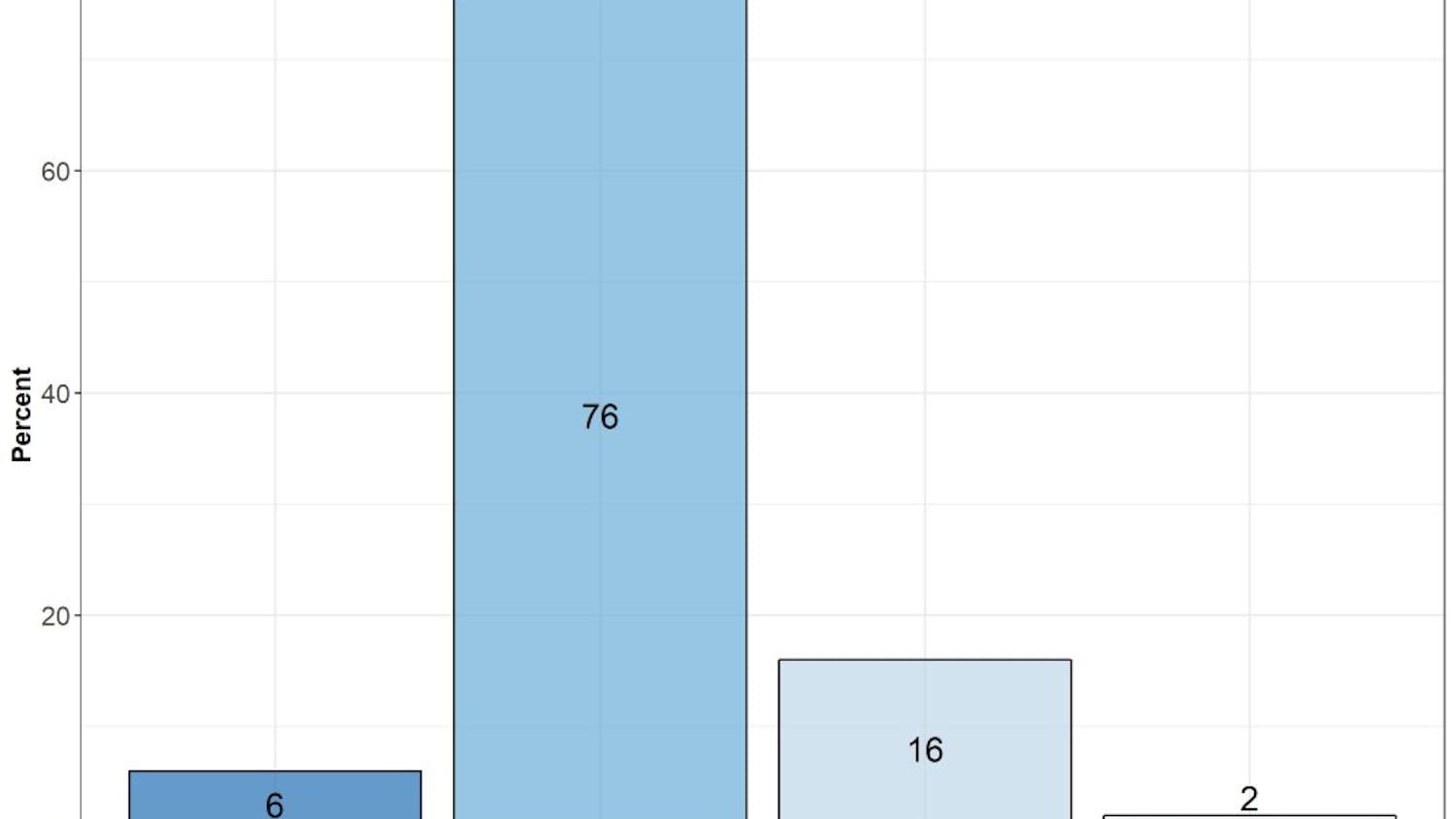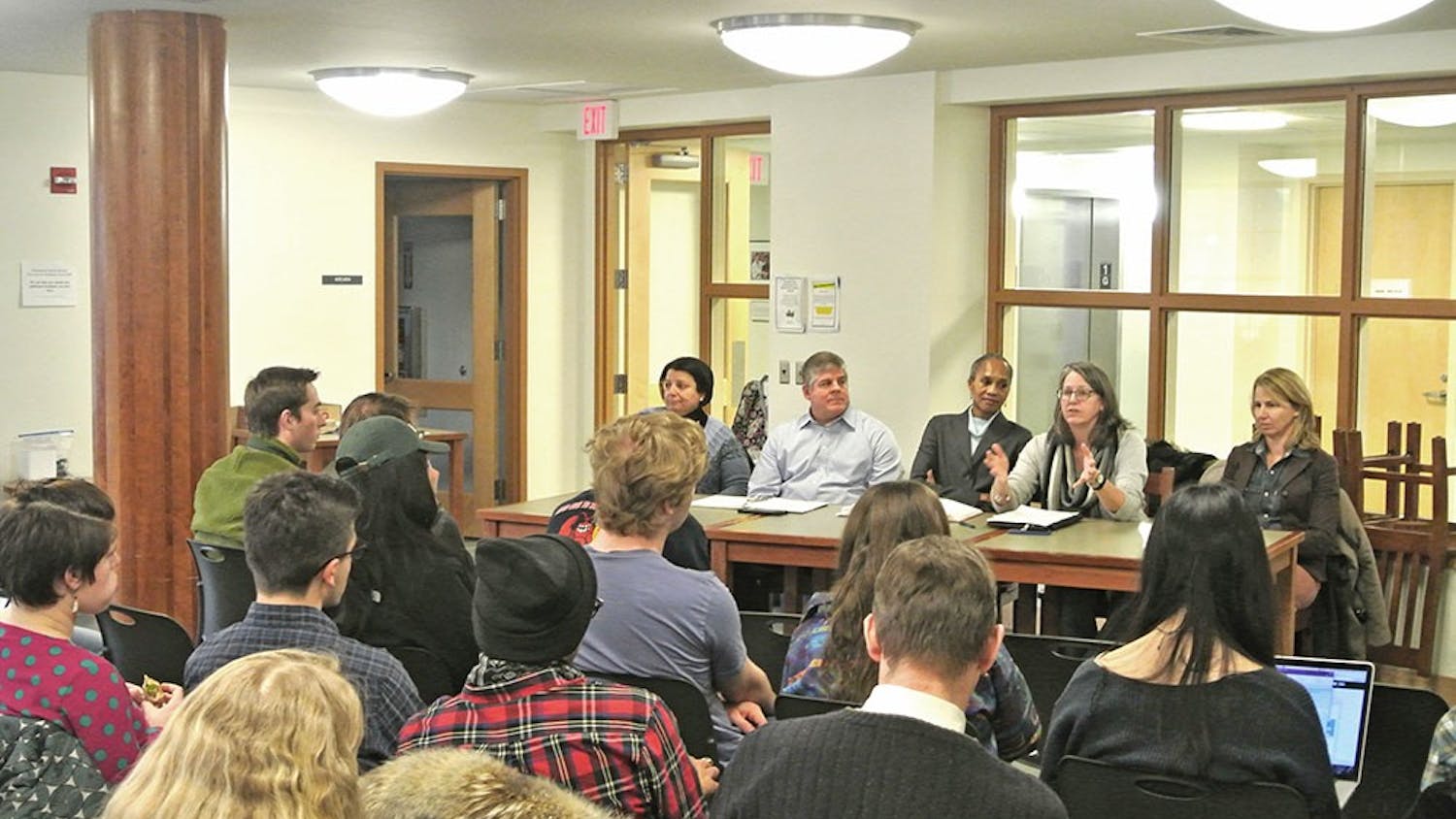As Dartmouth’s COVID-19 task force continues to send out near weekly emails informing the student body of the College’s latest decisions, students are considering the best way to offer student input.
The newly formed Dartmouth Student Union, Student Assembly and Palaeopitus senior society have all been in contact with the administration as the College tackles COVID-19-related issues. All three groups have advocated for greater student involvement in the decision-making process as the pandemic continues.
The DSU has asked specifically for a “seat at the table” alongside the administrators making COVID-19-related decisions. The union, which was recently formed by a group of students due in part to concerns over student access to the administration, stated in its March 19 letter to the College, and again in an April 20 letter, that it demands a “student liaison committee” on the task force, as well as paid leave for student workers and housing stipends for students in need.
Dean of the College Kathryn Lively noted that while students do not serve on the COVID-19 task force itself, there are student representatives from Student Assembly and Palaeopitus senior society on the committee determining how to conduct graduation for the Class of 2020, which was postponed due to the pandemic.
Regarding student input on other COVID-19-related decisions, Lively said that the College is “not short on student opinions,” noting that her office has received “hundreds” of emails a day, each of which is read and passed onto the COVID-19 task force. She also noted that she has regular meetings with members of SA and Palaeopitus.
Lively said that the task force focuses on health concerns in the Upper Valley and the “long-term health of the institution.” She said that this long-term focus would make it “really difficult for student members to be able to sit on the committee and [make] meaningful contributions.”
Lynette Long ’20, a moderator of Palaeopitus, said that she supports putting a student on the task force, adding that there should be “pressure on the administration” to increase student representation. However, she cautioned others to think about what this representation might look like and consider who would be qualified to represent all students.
DSU member Olivia Audsley ’21, said that student representatives for administrative committees should be chosen in an application process that is “not necessarily traditionally merit-based” but instead based on interest and experience as an informed leader. She added that she would like a student committee, such as SA, to help in the selection of this student.
Another member of the DSU, Mariana Peñaloza-Morales ’22 added that she hoped “students at the intersection of marginalized communities” would have representation on administrative committees.
SA president Luke Cuomo ’20 said that although he believes more student representation is needed amid the pandemic, an official student representative on the task force may not be the best option.
“I support increased student engagement with the task force on issues and decisions that affect students directly,” Cuomo said. “I’m not sure having a single student representative on the task force is the most effective way to ensure that the diversity of student need and opinion is represented, but I do believe that the task force and College leadership should continue to consult a wide variety of student leaders and communities when making important decisions about Dartmouth’s future.”
Audsley, however, emphasized the need to have a student representative, saying that “nobody knows what’s going on in student lives except for students.”
Peñaloza-Morales added that decision-makers have been in their positions for a “really long time,” and alumni that represent students have “been detached” from the student role for many years. She said that student representation needs to adapt to the changing needs of the student body.
Lively said that she was “sympathetic” towards students who feel that they have no input in decisions but said that “everyone is having decisions made for them without any input,” citing professors as an example.
“The faculty weren’t asked if they wanted to teach online,” she said. “They were told they were going to teach online because we're committed to the academic continuity of our students.”
Both Cuomo and Long said that they supported the addition of the DSU in advocating for student voices. Cuomo suggested that “having multiple pathways” and organizations to represent students ensured a “diversity of opinions” and represented a “diversity of needs” within the student body.
However, Cuomo also suggested that groups criticizing the administration, such as the DSU, keep in mind what their “ultimate goal is,” and “who has the power to actually make the changes.”
Lively said that she hoped that students would empathize with faculty and administrators who are “working harder than they’ve ever before,” mentioning that in the month of March, she worked “17 19-hour days in a row.”
She said that when faculty members working this hard receive “public denouncements saying that nothing is being done, they don’t go over well.”
“That is how most student activism at Dartmouth has always been,” Lively said. “And I think one of the things that’s always been discouraging for me as a sociology professor, who [studies] social change — institutional change — is that those are known not to work.”
Peñaloza-Morales touched on the need for the College to always be open to change and to “challenge the status quo.” She said that “if the institution is not open to change, they should reconsider their position as a world-class research institution.”
Cuomo said that SA needs to “elevate student concerns of all types,” which sometimes includes conflicting opinions, and reaching consensus within the Senate can be an obstacle in taking a public side on issues like COVID-19 policy.
He instead emphasized the “behind-the-scenes” work of SA in working to advocate and talk with administration about issues, noting that the ability to achieve results does not entirely come from public advocacy, but instead from “relationships with administration” that allow student issues to be heard.
Audsley noted that groups such as SA and Palaeopitus face “some restraints” on their power since they are groups that are “created and managed by the institution.”
Both Cuomo and Long mentioned that they have been talking to members of the administration, relaying student opinions regarding COVID-19 decision-making.
However, Long noted that the administration can be “very adverse” to student initiatives and that “things generally are reactive rather than proactive.”
Lively added to this, saying that students tend to avoid talking with administration until they are “really deeply unhappy” when it is “harder” to have an “open” conversation.
“We’re more transparent and accessible than most institutions right now,” Lively said.
She added that “a little bit of patience goes a long way” and that the College could be dealing with COVID-19 for a while, so students should “now try and come together and be creative.”




